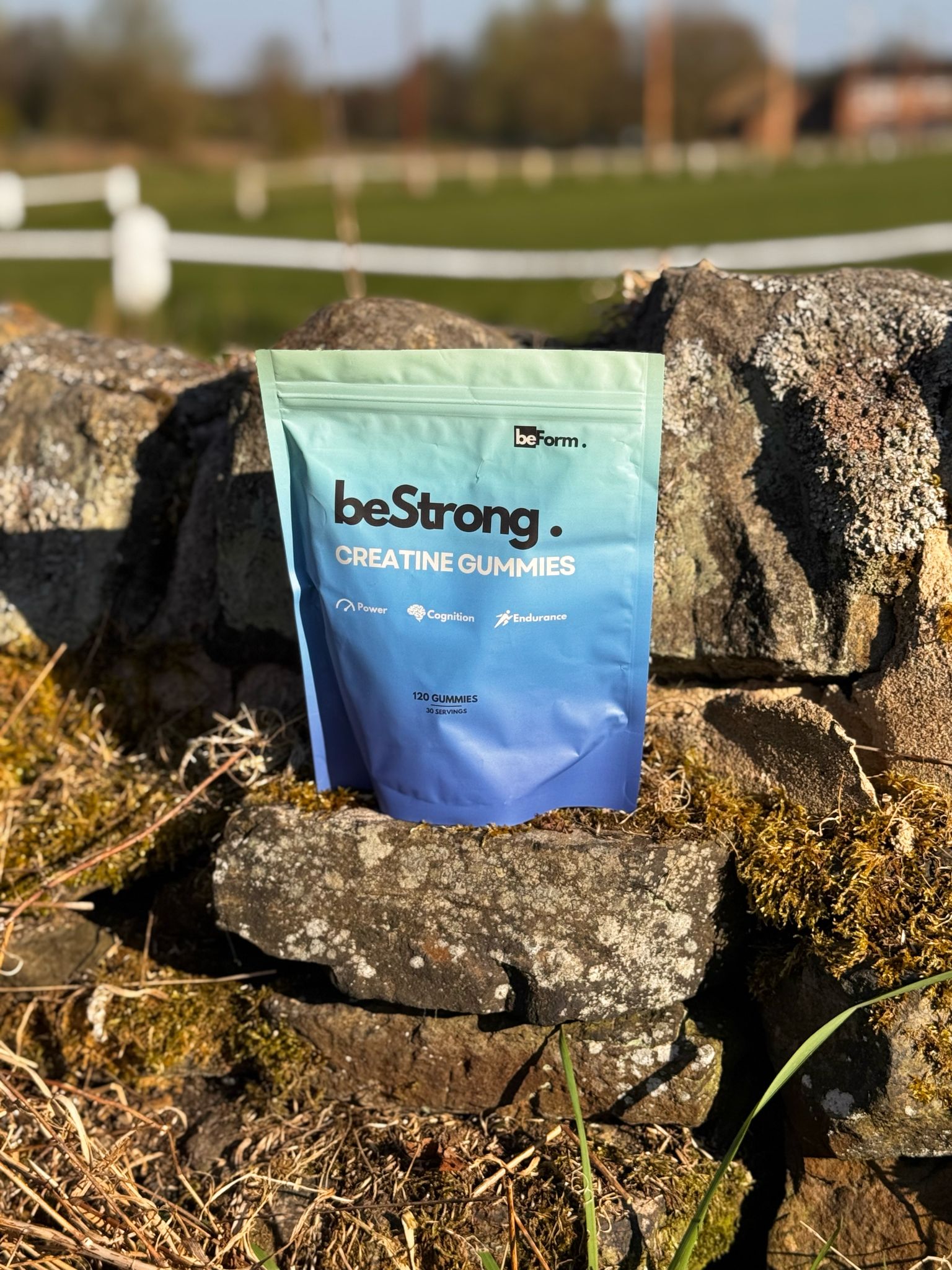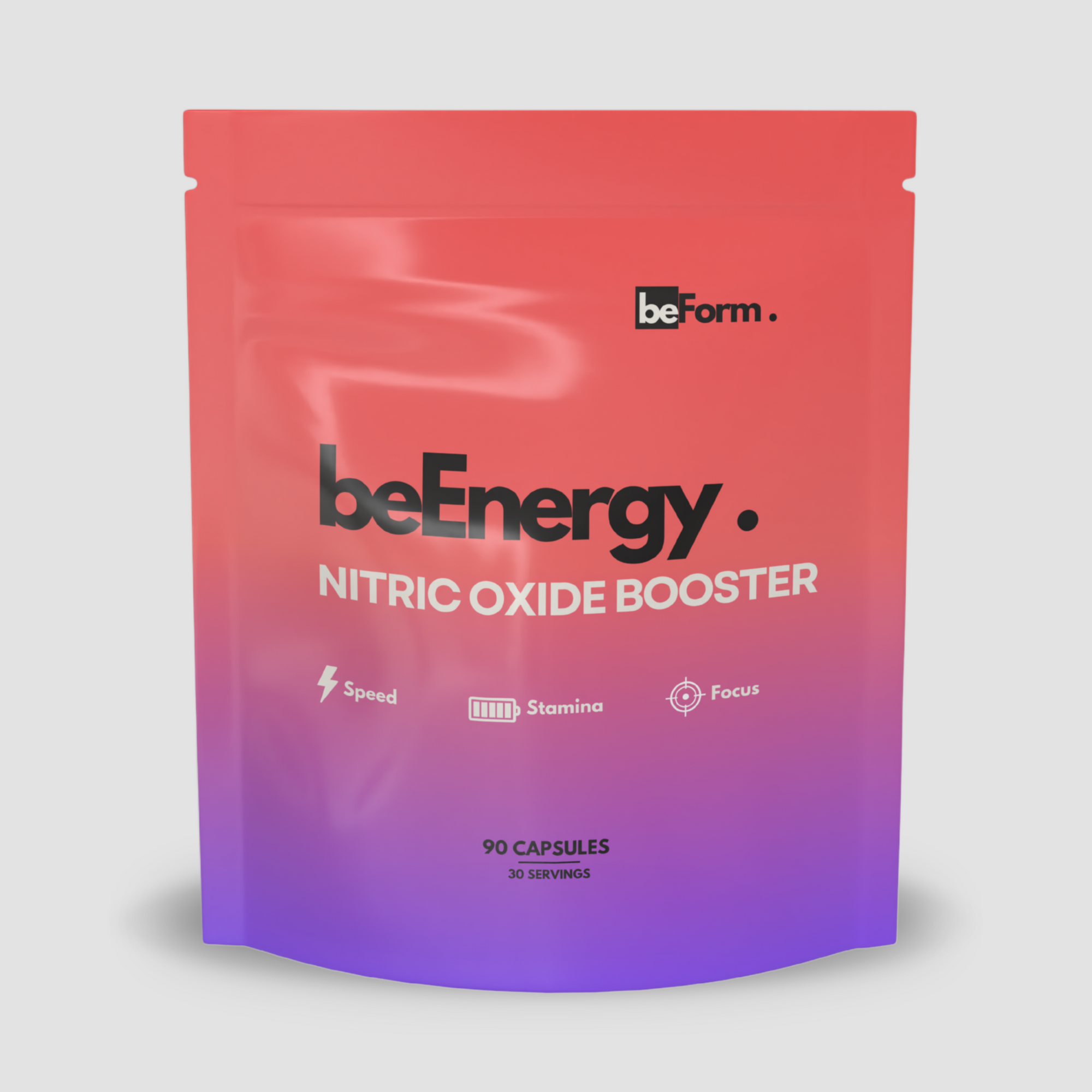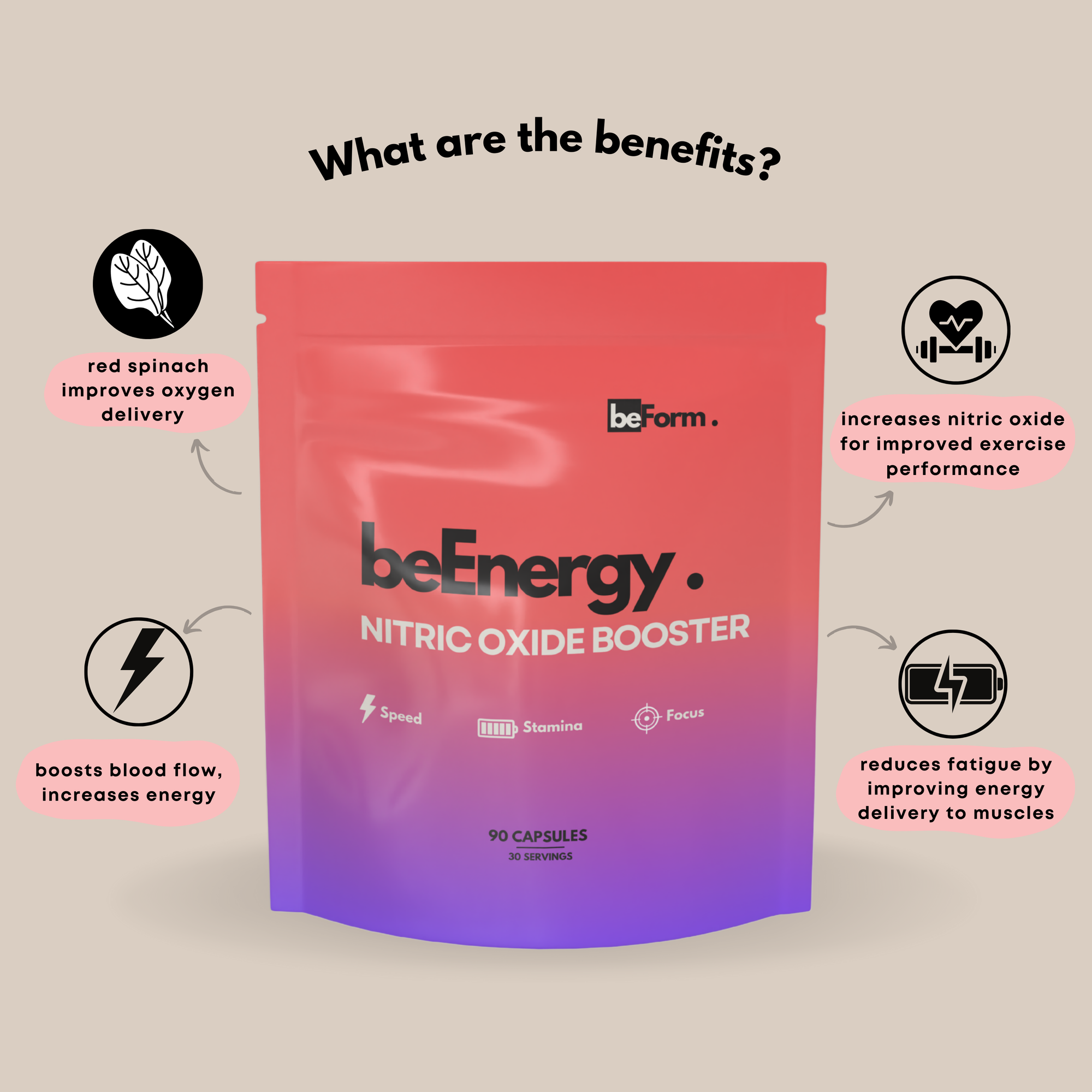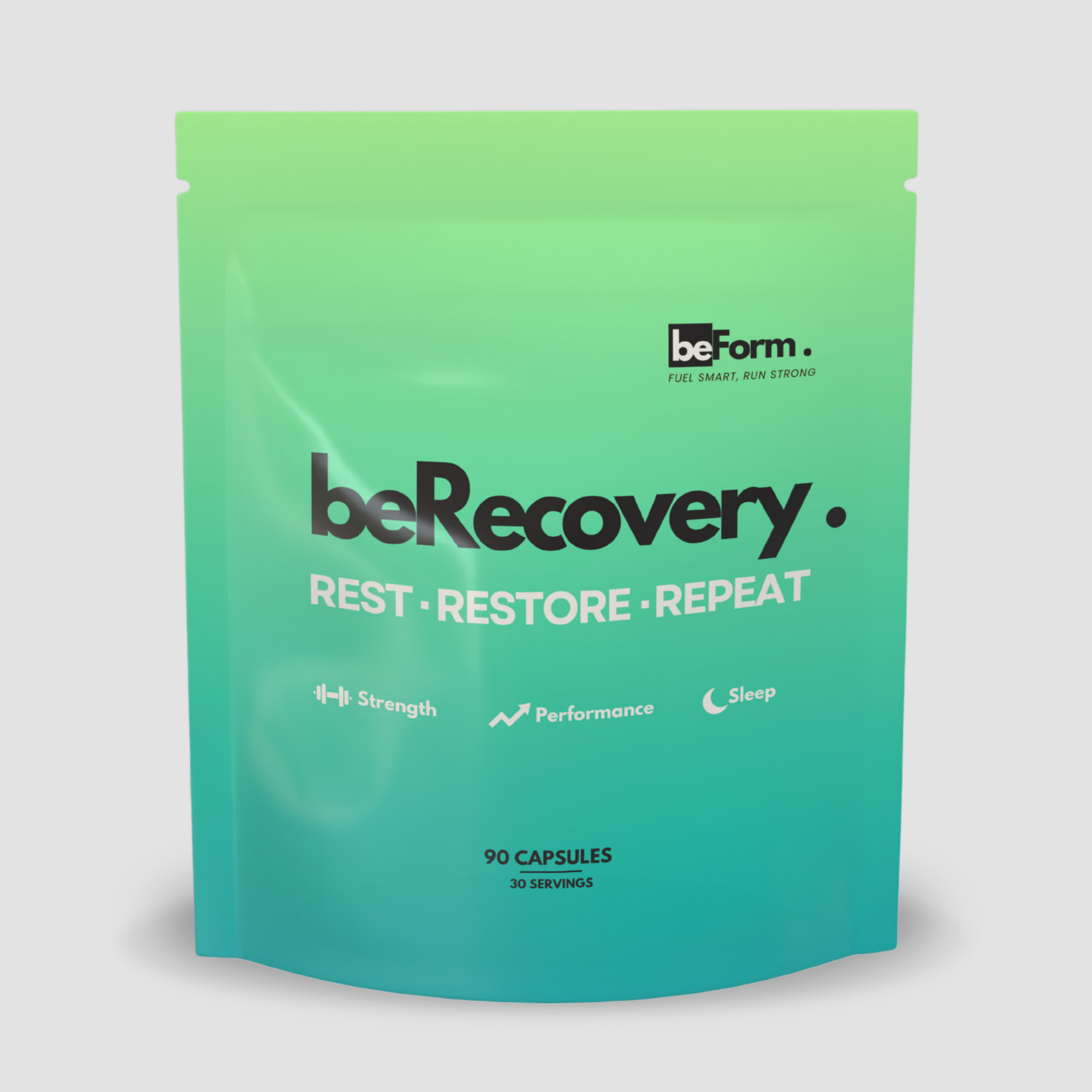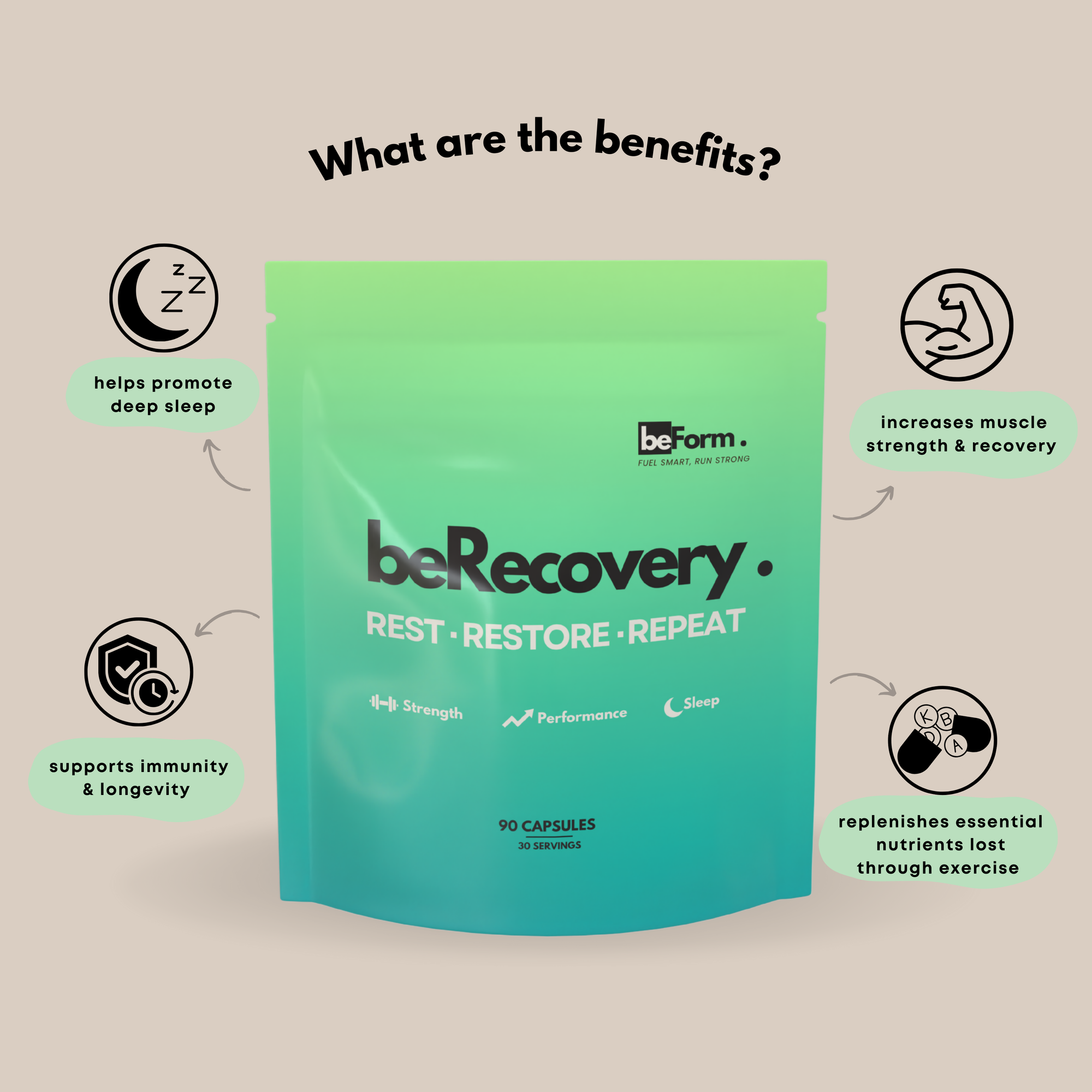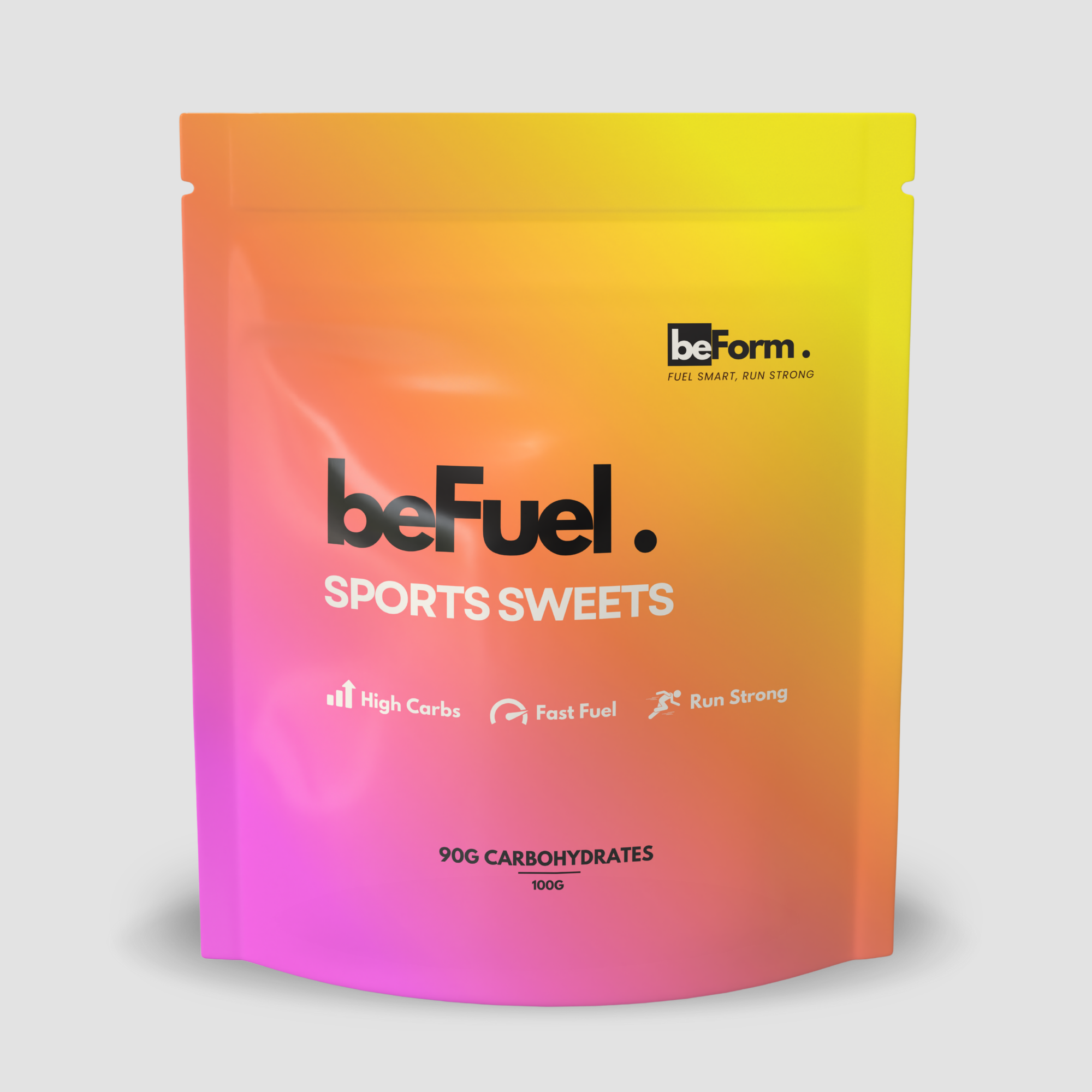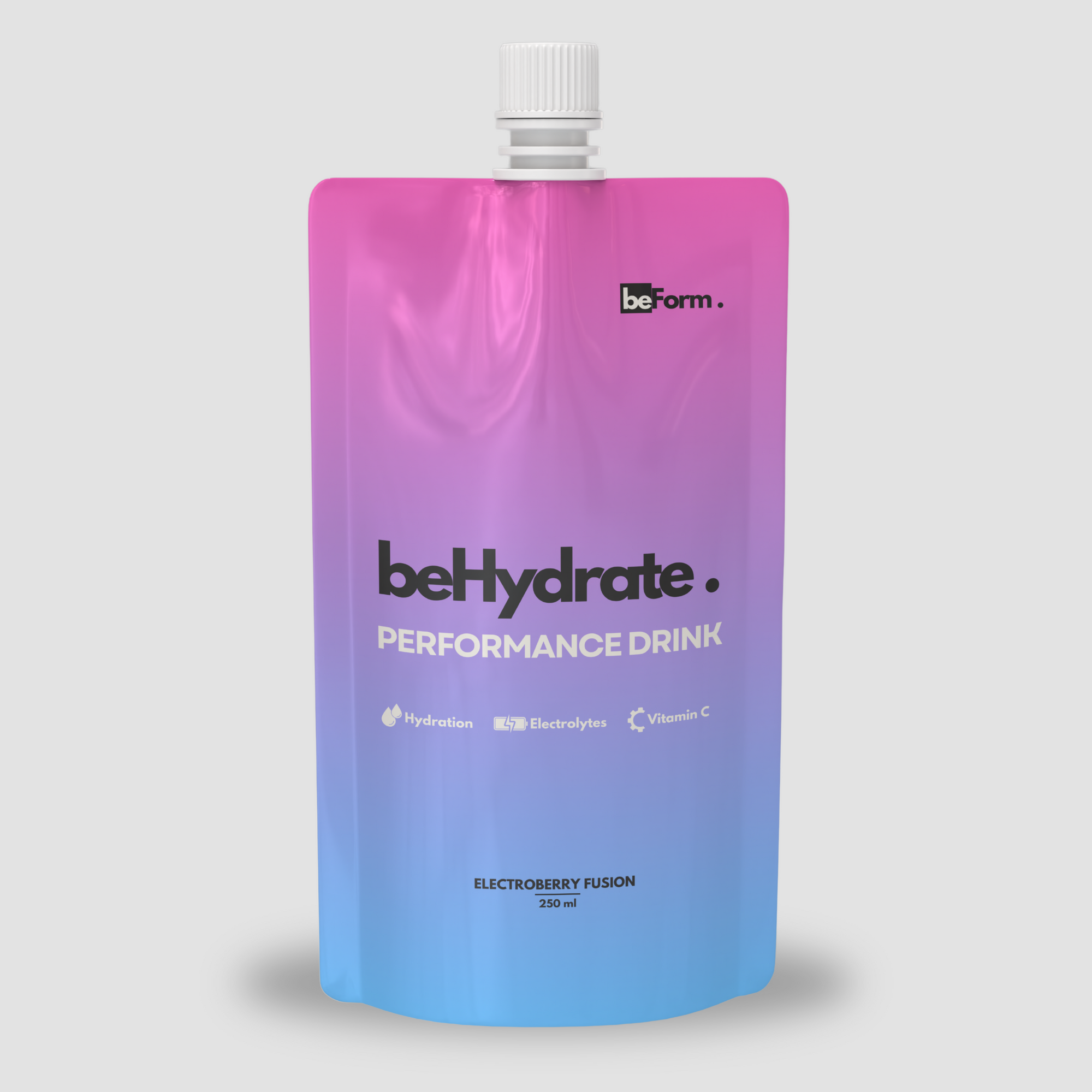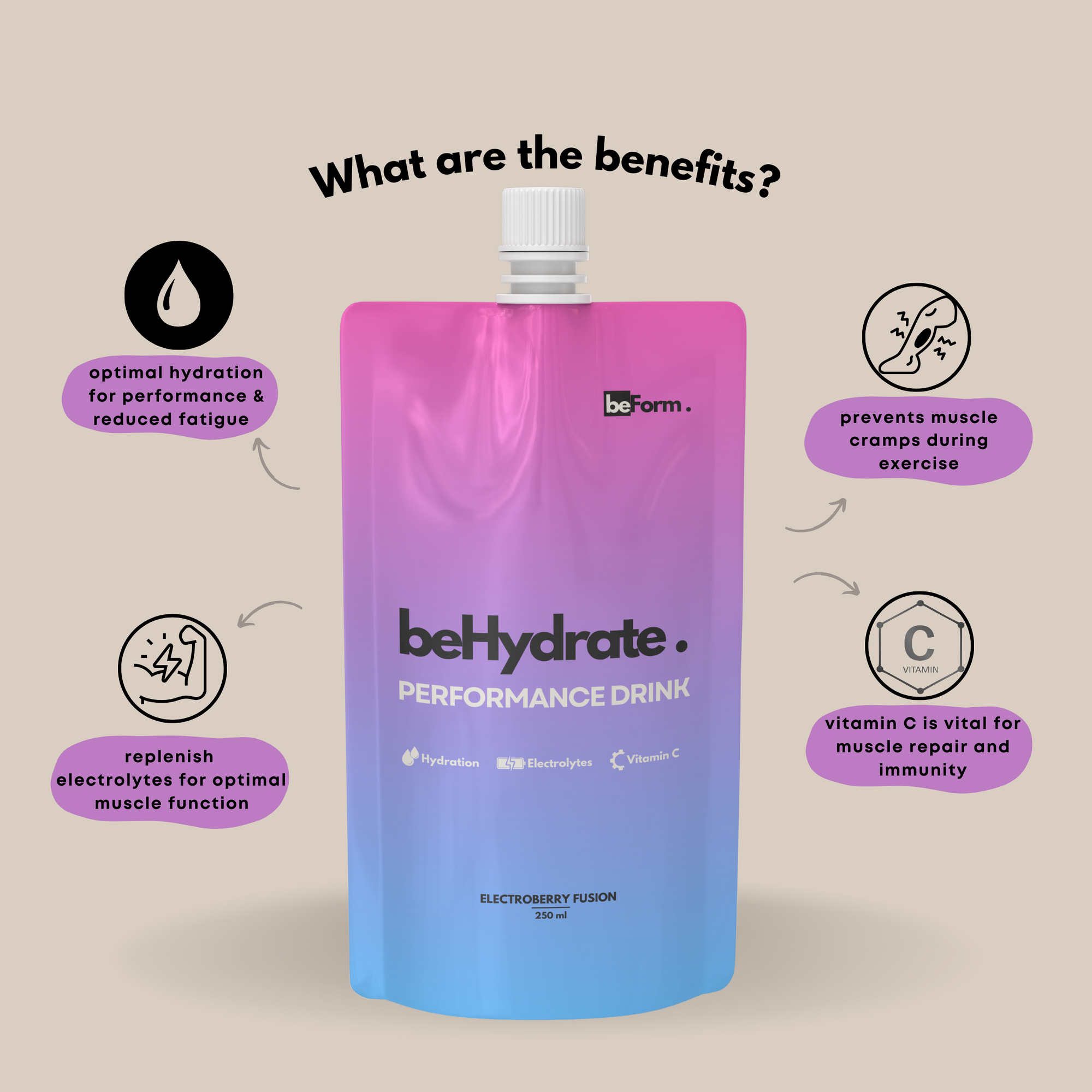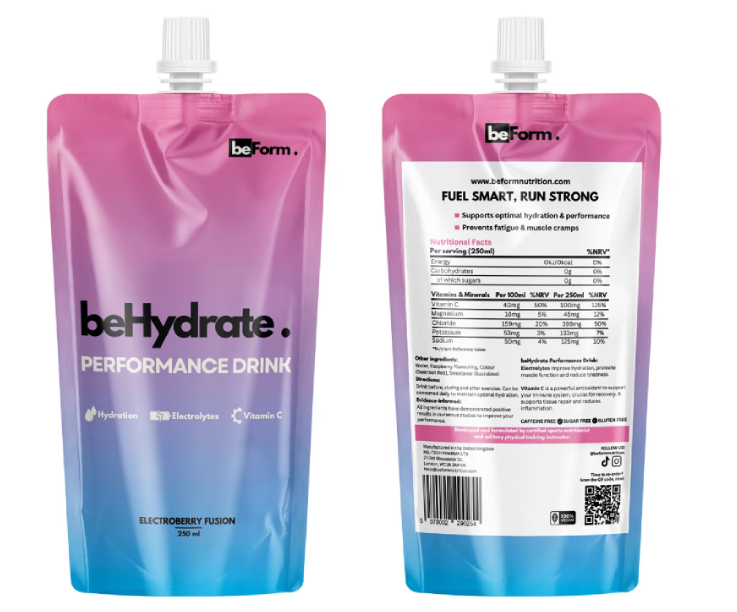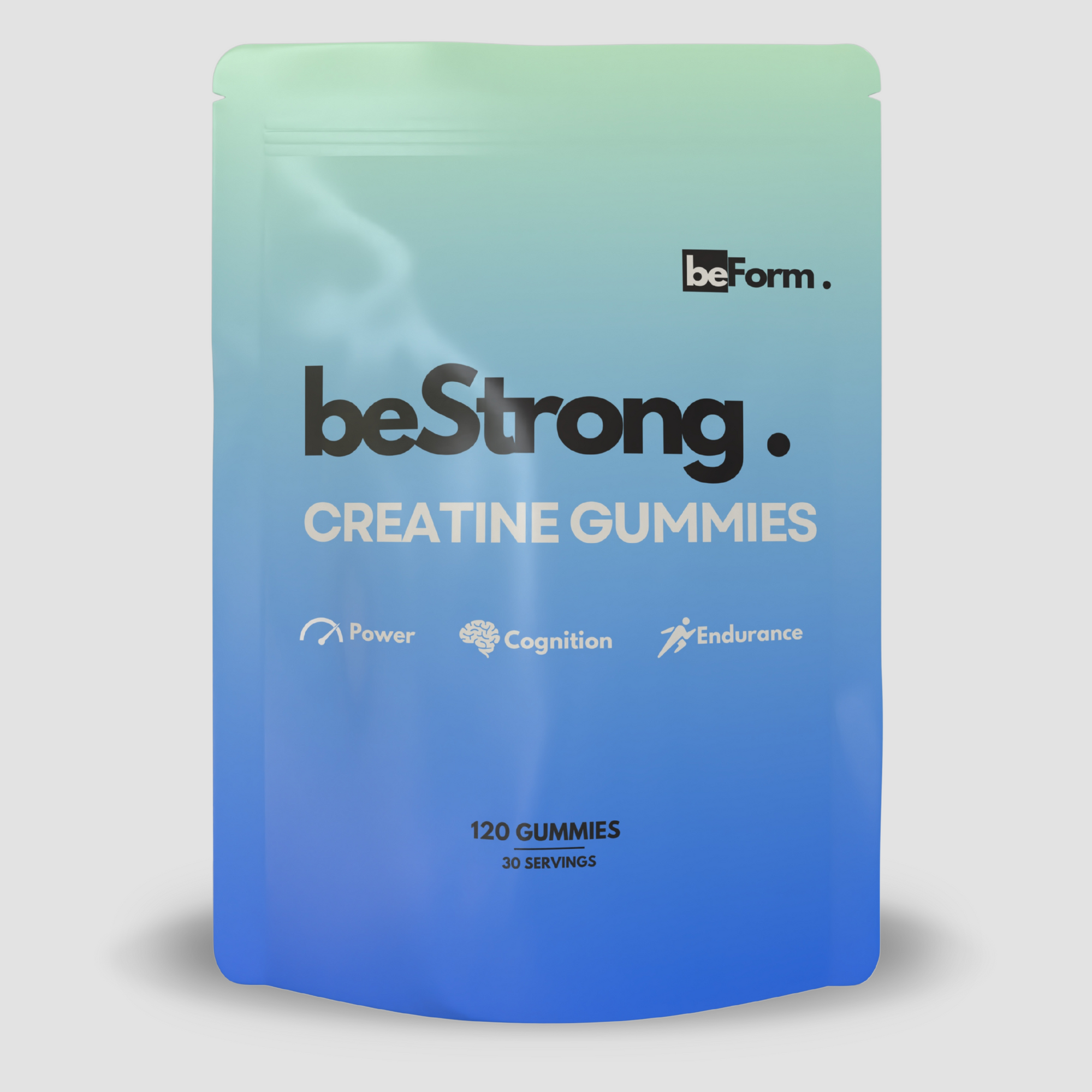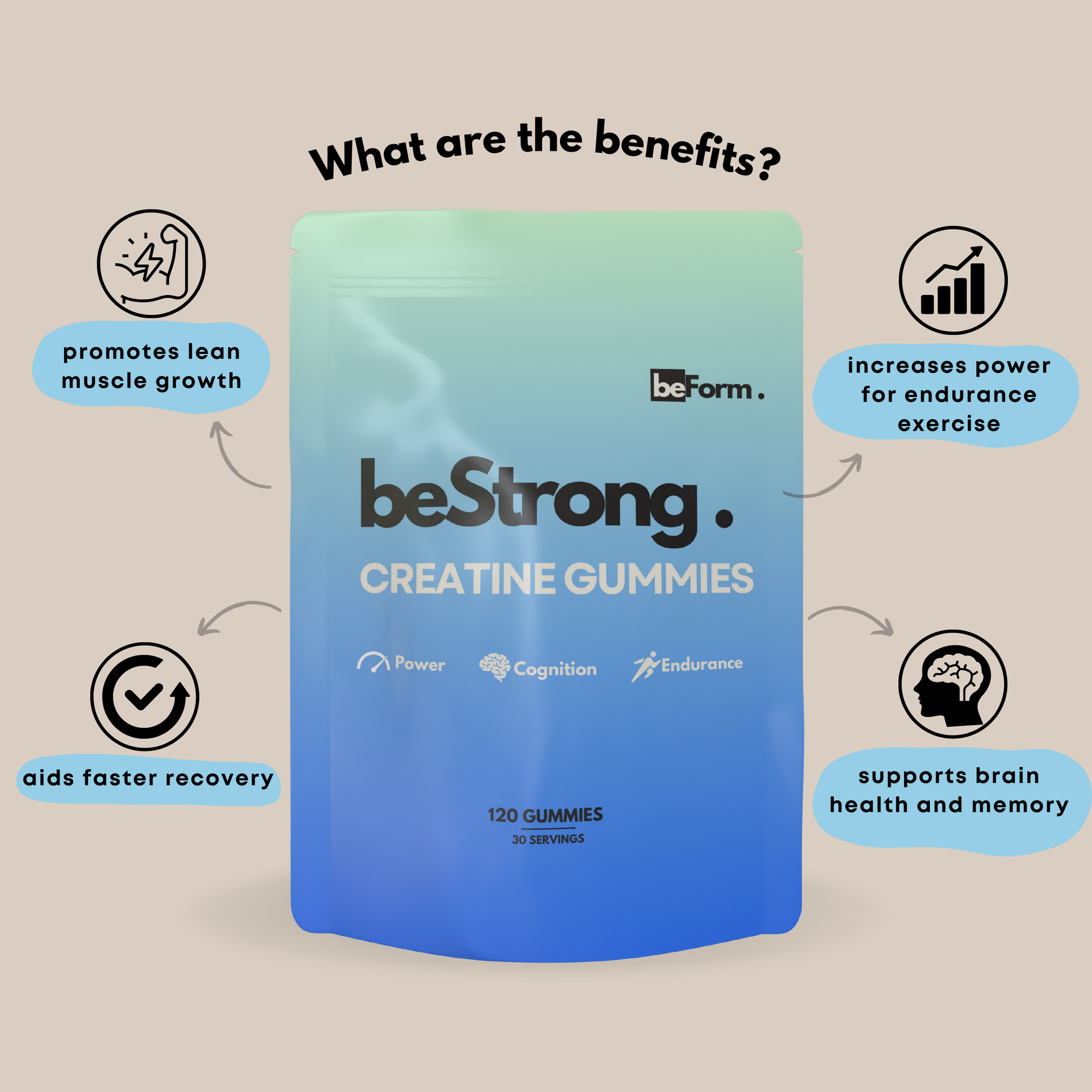Nutrition for Runners: An Overview
Nutrition plays a central role in optimising running performance and leading a healthy lifestyle for runners.
Nutrition doesn't just refer to what runners eat before or after running; rather, it encompasses an integrated approach that can have profound impacts on endurance, speed, and overall well-being.
Achieving an ideal balance of macronutrients (carbs, proteins, fats) along with essential vitamins and minerals is critical in meeting running's rigorous demands.
Many athletes find meeting these nutritional requirements through food alone difficult; this is where supplements become indispensable.
Supplements can greatly enhance athletic performance by providing runners with additional sources of essential nutrients that may be lacking from their daily diets.
Supplements can improve energy levels, helping runners push through training sessions and meet their goals more easily.
Furthermore, certain supplements may aid muscle recovery and repair processes, helping reduce soreness post-run. Furthermore, strengthening muscles and joints with appropriate supplements is an essential step toward injury prevention for long-term runners who may be approaching overreaching and falling into overtraining.
Running presents unique nutritional challenges, from maintaining energy levels during long runs to recovering adequately post-exercise.
Understanding which supplements can best meet their nutritional needs is paramount - targeting deficiencies or increasing nutrient intake can improve performance and overall health while creating more enjoyable running experiences.
In this article, we'll look at various supplements useful for runners as well as their effectiveness and relevance to an athlete's dietary regime.
Creating a strong nutritional foundation with carefully chosen supplements is key for optimising performance, endurance and an enjoyable running experience!
The Role of Carbohydrates for Endurance
Carbs are an essential macronutrient for runners, serving as the main source of energy needed for optimal performance and endurance.
After being consumed, carbohydrates break down into glucose, which fuels cells throughout the body - this makes adequate carb intake vital during high-intensity training and long-distance runs, directly impacting both stamina and overall performance.
During prolonged exercise, our bodies depend heavily on glycogen stores - stores of stored glucose found primarily in muscles and the liver for energy.
When that resource runs low, fatigue ensues quickly. To ensure they maintain sufficient levels of energy during runs of any intensity or duration, it is important that distance runners consume 5 to 10 grams of carbs per kilogram of bodyweight each day in order to sustain energy levels and stay fueled up for their run.
In fact, the intake range is recommended by the Sports Medicine Journal as being 5-7g per kg of bodyweight for general training needs and 7-10g per kg of bodyweight for endurance athletes.
Runners can benefit from choosing an easily digestible carb source such as pasta, bread or rice for their carb needs before, during and after runs.
Foods like bananas, energy gels and sports drinks provide fast rehydration of glycogen levels while providing instant energy when needed most.
However, choosing the proper source can reduce gastrointestinal discomfort during exercise and ensure proper digestion and absorption during training sessions.
Understanding the critical role that carbohydrates play in endurance running is essential for athletes looking to optimise performance.
A diet rich in carbs will allow runners to support their training needs, sustain energy levels and ultimately reach their running goals more easily. Prioritising carbs will allow athletes to perform at their optimal level while simultaneously reducing fatigue and speeding recovery after running sessions.
Hydration and Electrolytes as the Core Components: Your Support Group
Hydration and electrolyte balance are vital elements in a runner's training regime, significantly impacting performance and recovery.
When engaging in endurance sports such as running, sweating causes fluid loss, which leads to dehydration.
Dehydration negatively impacts physical capabilities as well as cognitive performance; therefore, maintaining adequate hydration levels while replenishing lost electrolytes cannot be overstated.
Electrolytes such as sodium, potassium, magnesium and calcium play an integral part in many bodily processes, from muscle contraction and nerve signalling to cramps, dizziness and fatigue, making electrolyte depletion an issue among runners who engage in prolonged or intensive training sessions.
Supplementing their hydration strategy with electrolyte-rich supplements may help prevent deficiencies that impede athletic performance and aid recovery.
Sports drinks formulated with an ideal combination of electrolytes and carbohydrates can be highly effective hydration sources for long runs.
Not only can such beverages replenish lost electrolytes, but their carbohydrates serve as energy sources as well.
It is crucial when selecting an electrolyte supplement or sports drink for personal needs, as factors like running duration, environmental conditions, and sweat rates vary significantly between individuals. Thus, tailoring hydration plans specifically to each athlete is paramount to optimal results.
Nitrates and Creatine: The Supporting Cast
Nitrates and creatine supplements have become popular for their ability to enhance running performance.
Nitrates
Nitrates derived from sources like red spinach extract have been proven to improve blood flow and oxygen delivery to muscles, particularly during endurance activities like marathons.
Research indicates that these compounds contribute to improved exercise efficiency by helping athletes endure higher intensities for extended periods of time.
Nitrates play an essential role in turning nutrients into energy for endurance performance, making them essential supplements for runners seeking to expand their capabilities and push themselves further.
Nitrate-rich supplements have proven themselves over time in trial performances and race outcomes; studies have even proven the efficacy of long-term nitrate supplementation as an essential supplement.
Creatine
Creatine, widely associated with strength training, also presents significant advantages for runners. This compound helps develop muscle strength and power to increase speed during sprints or hilly courses such as the Yorkshire Three Peaks.
While its usage among weightlifters was previously confirmed, its utility in running has increasingly become validated.
Supplementation of creatine can increase muscle phosphocreatine stores for faster ATP regeneration during intense physical activity, allowing runners to sustain higher intensity for shorter periods, optimising performance when speed is paramount.
Both nitrates and creatine supplements can be invaluable additions to a runner's diet, offering distinct yet complementary advantages.
By improving blood flow, stamina, strength, and power, these supplements serve as performance enhancers that may lead to personal bests as well as improve the running experience overall.
Caffeine Has an Energising Effect
Caffeine is an iconic stimulant and has quickly gained significant traction within the running community. Its stimulating properties are proven to enhance physical performance by increasing energy levels and endurance - making caffeine an appealing supplement among runners.
Furthermore, drinking coffee before running has been shown to provide increased stamina due to its ability to mobilise fatty acids from body fat storage to support prolonged energy availability; an advantage especially useful during long running sessions.
Additionally, caffeine has been shown to increase focus and mental alertness - both benefits that runners may require during long-distance races.
Being able to maintain cognitive function during strenuous physical activity is critical to overall performance; many athletes thus purposely integrate caffeine into their training regimes for running events.
To maximise effective caffeine usage, runners must first ascertain their tolerance levels.
A typical recommendation for optimising performance-boosting effects of caffeine consumption for runners is taking between 30-60 mg of caffeine per kg of bodyweight 30-60 minutes before running.
That said, studies suggest 3 -6 mg may provide optimal results; it's important for runners to experiment with various dosages during training to discover what works best without experiencing adverse side effects.
However, too much caffeine or too close to bedtime may lead to symptoms like jitteriness, digestive discomfort or sleep disturbances for some runners.
Moderation is key; finding an ideal balance can harness its energising power without risking too much in terms of performance or risk, creating an enjoyable running experience overall.
Recovery with Branch Chain Amino Acids (BCAAs)
BCAAs (Branched-Chain Amino Acids) have become an invaluable supplement in the athletic community, particularly among runners looking to increase performance and recovery.
These essential amino acids (leucine, isoleucine and valine) are vital in muscle repair and regeneration after intense training.
Muscle tissues undergo considerable strain during runs, which can result in soreness and fatigue; BCAAs have proven beneficial by stimulating protein synthesis essential for recovery.
Research suggests that BCAAs can significantly mitigate muscle soreness post-exercise, helping athletes maintain more consistent training regimens.
By decreasing delayed onset muscle soreness (DOMS), runners may enjoy quicker recovery times without prolonged discomfort during their training regimens.
Furthermore, BCAAs help preserve lean muscle mass during times of intense training or caloric deficits, making this beneficial to runners seeking to optimise both their body composition and peak performance simultaneously.
For optimal effects, it is advisable to consume BCAAs together with carbohydrates for maximum results. This combination not only aids the uptake of amino acids into muscles but also replenishes glycogen stores that may have become depleted from prolonged running sessions.
Studies indicate that taking BCAAs together with carbohydrates and caffeine may boost overall performance and recovery, making this an excellent strategy for runners looking to maximise training outcomes.
Supplementation strategies could thus use BCAAs effectively as part of an arsenal supporting both recovery and sustained athletic performance.
Conclusion: Finding the Appropriate Supplement for You
At this point, we have examined various supplements that can significantly increase a runner's performance.
From electrolytes and protein powders to vitamins and minerals, these can support hydration, muscle recovery and overall health, but it's essential to note that supplementation may differ according to body composition, diet habits, training intensity levels and personal fitness goals of individual runners.
As part of your decision process for choosing the best supplements to meet your running routine and demands, take time to consider your running routine and the different aspects it requires of you.
A long-distance runner might prioritise endurance through carbohydrates and electrolytes, while sprinters might rely on protein and recovery-enhancing supplements.
Tailoring your supplement regimen based on these considerations can not only enhance performance but also contribute to long-term sustainability on your journey.
Supplements can be an invaluable part of your training toolkit, yet should complement a balanced diet rich in whole foods.
By including tailored supplements alongside nutritious meals and consistent training, you will be more equipped to reach your running goals.
Please share any insight or advice on our Facebook page so we can all work together and overcome this obstacle and enjoy running to the fullest.



